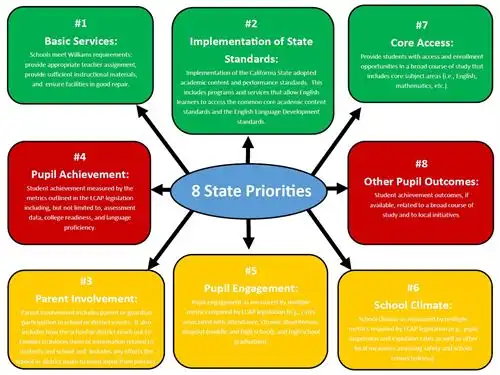LCAP Support & Information
Local Control Accountability Plan (LCAP)
The Local Control Accountability Plan, or LCAP, is a central part of California’s approach to supporting student success. The LCAP is a comprehensive three-year planning tool that helps each district tell its story—where it is now, where it is going, and how it will get there.
Each plan is developed through engagement with educational partners, including school personnel, families, students, and community members. It outlines district-wide and school-wide goals, as well as the specific actions that will be taken to support all students, with a particular focus on English learners, foster youth, and socioeconomically disadvantaged students.
The LCAP addresses each of the ten state priority areas, along with any locally identified priorities, and includes metrics to measure progress in each area. Districts report annually on actual expenditures, progress toward meeting their goals, and adjustments made based on data and feedback.
In addition, each LCAP provides a detailed accounting of how funds are spent to implement goals and actions, including how supplemental and concentration funds are used to increase or improve services for students with the greatest needs.
At its core, the LCAP is more than a compliance document—it is a tool for reflection, accountability, and continuous improvement that allows districts to connect planning, resources, and outcomes in a way that best supports students.

LCAP DOCUMENTSAccess current, adopted LCAPs for districts and the county office, along with archived plans from prior years
Access current, adopted LCAPs for districts and the county office, along with archived plans from prior years
Current LCAPs
Archived District LCAPs
Charter LCAPs
State Priorities

Conditions for Learning
PRIORITY 1: BASIC SERVICESEngagement
PRIORITY 3: PARENT INVOLVEMENTPupil Outcomes
PRIORITY 4: PUPIL ACHIEVEMENT
